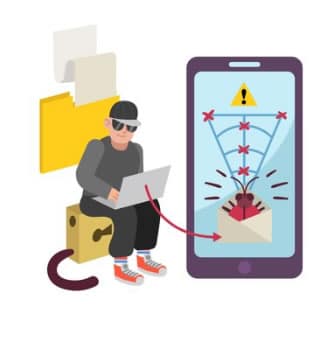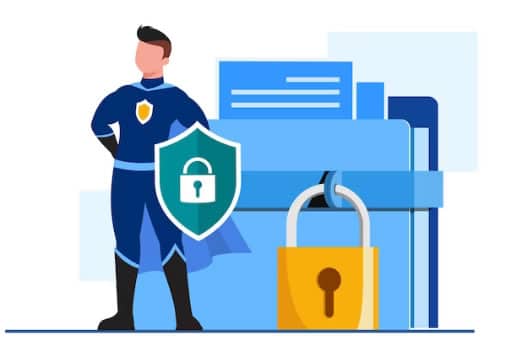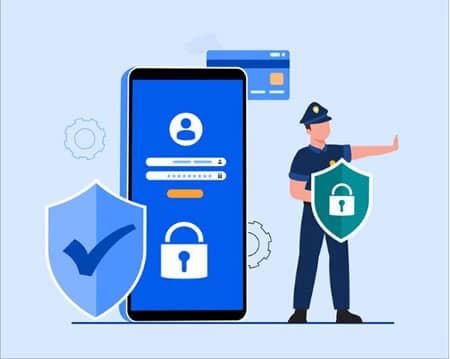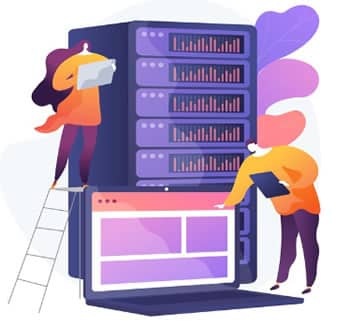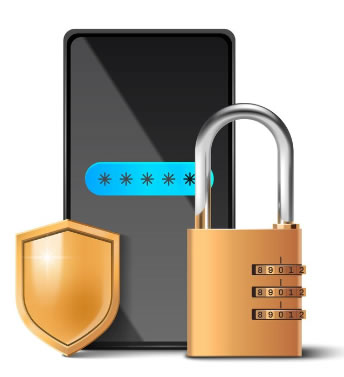In the dynamic and ever-evolving realm of cyberspace, Kenya stands at the forefront of technological advancements in Africa. However, this rapid digitization has also paved the way for an increase in cybercrime activities, posing significant threats to individuals, businesses, and government institutions alike. Understanding the diverse forms of cybercrime prevalent in Kenya is crucial for safeguarding against these malicious attacks and ensuring the secure utilization of technology.
Examples of cyber crimes in Kenya
1. Malware Attacks: The Unsolicited Guests
Malware, short for malicious software, encompasses a wide range of harmful programs designed to disrupt, damage, or steal data from computer systems. Malware attacks are among the most prevalent forms of cybercrime in Kenya, with malware infections accounting for a staggering 181.9 million of the total 340 million cybercrime incidents reported in 2021. Common types of malware include viruses, worms, Trojan horses, spyware, and ransomware.
2. Phishing: The Art of Deception
Phishing scams involve tricking unsuspecting individuals into revealing sensitive information, such as passwords or credit card details, through deceptive emails, websites, or social media messages. These scams often mimic legitimate sources, like banks or online retailers, to gain the victim’s trust. Phishing attacks are a significant concern in Kenya, as they target individuals’ financial and personal information.
3. Cyber-Financial Fraud: The Digital Heist
Cyber-financial fraud encompasses a variety of crimes aimed at stealing money or valuable assets through online means. These crimes include identity theft, credit card fraud, online banking fraud, and investment scams. Cyber-financial fraud is a major threat to both individuals and businesses in Kenya, causing substantial financial losses.
4. Data Breaches: The Exposure of Sensitive Information
Data breaches involve unauthorized access to and theft of sensitive data stored in computer systems. These breaches can expose personal information, financial records, medical data, or intellectual property, causing significant harm to individuals and organizations. Data breaches have become increasingly common in Kenya, as cybercriminals target businesses and government institutions with valuable data assets.
5. Distributed Denial-of-Service (DDoS) Attacks: The Overwhelming Force
DDoS attacks involve flooding a target system with overwhelming traffic, causing it to become unavailable to legitimate users. These attacks are often carried out by botnets, networks of compromised devices under the control of cybercriminals. DDoS attacks can disrupt critical services, such as websites, financial institutions, and government infrastructure, causing significant disruption and financial losses.
6. Cyber Espionage: The Stealthy Intrusion
Cyber espionage involves the unauthorized infiltration of computer systems to steal sensitive information or intellectual property. These attacks are often carried out by state-sponsored actors or sophisticated criminal organizations seeking to gain an advantage in business, military, or political spheres. Cyber espionage poses a significant threat to Kenya’s national security and economic interests.
7. Child Cybercrime: The Darkest Corner of the Digital World
Child cybercrime encompasses a range of illegal activities involving the exploitation, abuse, or endangerment of children online. These crimes include the production, distribution, and possession of child pornography, as well as online grooming and cyberbullying. Child cybercrime is a serious and growing problem in Kenya, causing irreparable harm to children and their families.
Combating Cybercrime: A Collective Responsibility
Addressing the growing threat of cybercrime in Kenya requires a multifaceted approach involving individuals, businesses, government agencies, and international organizations. Individuals must practice cybersecurity hygiene, such as using strong passwords, avoiding suspicious links, and keeping software updated. Businesses must invest in robust cybersecurity measures to protect their data and systems from unauthorized access.
Government agencies must play a crucial role in developing and enforcing cybersecurity laws and regulations, providing public education and awareness campaigns, and establishing national cybersecurity response capabilities. International collaboration is also essential to combat cybercrime, as cybercriminals often operate across borders. By working together, stakeholders can create a more secure and resilient digital environment for all.
Penalties for cyber Crime in Kenya
The Computer Misuse and Cybercrimes Act, 2018 (CMCA) is the primary legislation governing cybercrime in Kenya. The Act provides for a range of offenses and penalties for various cybercrimes, including:
- Unauthorized access: A person who accesses a computer system without authorization commits an offense and is liable on conviction to a fine not exceeding five million shillings or to imprisonment for a term not exceeding three years, or to both.
- Access with intent to commit further offense: A person who accesses a computer system with intent to commit a further offense under any law, or to facilitate the commission of a further offense by that person or any other person, commits an offense and is liable on conviction to a fine not exceeding ten million shillings or to imprisonment for a term not exceeding ten years, or to both.
- Unauthorized interference: A person who interferes with a computer system or network, without authorization, commits an offense and is liable on conviction to a fine not exceeding five million shillings or to imprisonment for a term not exceeding three years, or to both.
- Unauthorized interception: A person who intercepts a communication in the course of its transmission over a computer system or network, without authorization, commits an offense and is liable on conviction to a fine not exceeding five million shillings or to imprisonment for a term not exceeding three years, or to both.
- Illegal devices and access codes: A person who possesses or makes use of any device or access code for the purpose of committing an offense under this Act commits an offense and is liable on conviction to a fine not exceeding five million shillings or to imprisonment for a term not exceeding three years, or to both.
- Unauthorised disclosure of password or access code: A person who discloses a password or access code to another person without the authorization of the owner of the password or access code, commits an offense and is liable on conviction to a fine not exceeding five million shillings or to imprisonment for a term not exceeding three years, or to both.
- Enhanced penalty for offences involving protected computer system: A person who commits an offense under this Act in relation to a protected computer system commits an offense and is liable on conviction to a fine not exceeding ten million shillings or to imprisonment for a term not exceeding ten years, or to both.
The CMCA also provides for a number of other offenses, including cyber espionage, false publications, publication of false information, child pornography, computer forgery, computer fraud, cyber harassment, cybersquatting, identity theft and impersonation, phishing, interception of electronic messages or money transfers, willful misdirection of electronic messages, cyber terrorism, and sabotage.
In addition to the penalties provided for in the CMCA, the court may also order the confiscation or forfeiture of any assets used in the commission of an offense, and may order the offender to pay compensation to any person who has suffered loss or damage as a result of the offense.
The CMCA is a comprehensive piece of legislation that provides a strong framework for combating cybercrime in Kenya. However, it is important to note that the law is constantly evolving, and cybercriminals are becoming increasingly sophisticated. It is therefore essential for individuals and businesses to take steps to protect themselves from cybercrime, and for law enforcement agencies to stay up-to-date on the latest cybercrime trends and techniques.
NB: Kindly note that the information contained is only intended for general knowledge. It therefore should not be construed as legal advice, for more information consult an advocate or visit https://nc4.go.ke/the-computer-misuse-and-cybercrimes-act/ for more information.
Here’s some more useful resources on Cybercrimes in Kenya
https://www.linkedin.com/pulse/comprehensive-overview-cybercrimes-kenya-q4pke/
https://medium.com/@eastafricatechsolutions/a-comprehensive-overview-of-cybercrimes-in-kenya-a7afee1997e6
